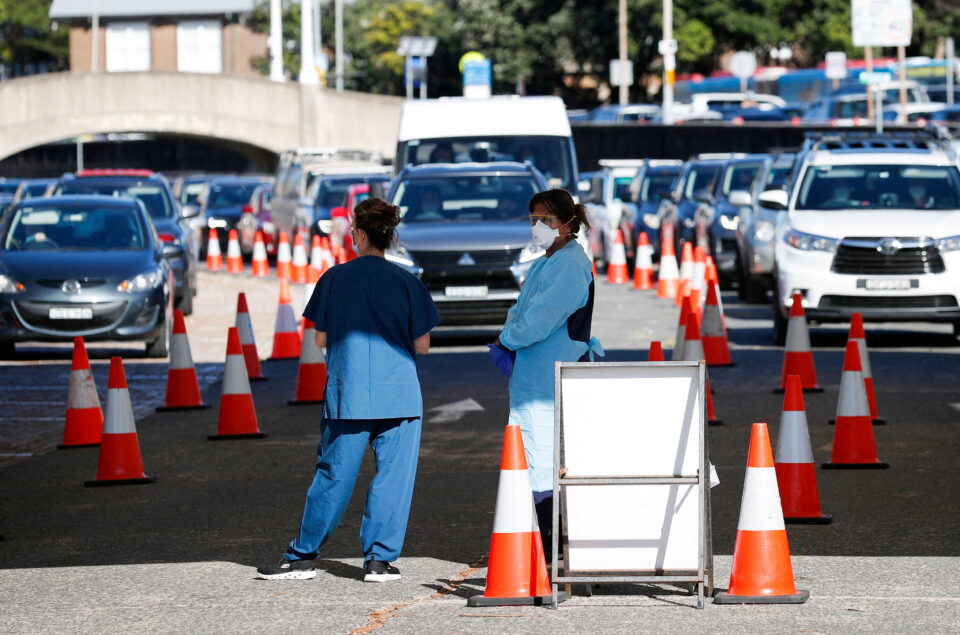217
 |
| Healthcare workers wait for the next vehicle at a coronavirus disease (COVID-19) testing clinic as the Omicron coronavirus variant continues to spread in Sydney |
Australia suffered its deadliest day of the COVID-19 pandemic on Friday with nearly 100 deaths, but several large states said they expect hospital admissions to fall amid hopes that the latest wave of infections would begin to subside.
Fuelled by the fast-spreading Omicron variant, infections exploded during the past four weeks, with around two million cases recorded. Up until then, Australia had counted just 400,000 cases since the pandemic first hit the country nearly two years ago.
But steady hospitalisation rates in recent days have raised hopes that worst could be over.
“Generally the situation is stable … and we’re expecting further falls (in hospital cases),” Queensland state Chief Health Officer John Gerrard said during a media briefing, as hospital cases in the state fell for the third straight day to 818.
But he warned the state’s 5 million residents that the pandemic was far from over. “So don’t go out and celebrate yet but the news at this stage is good,” he said.
Hospitalisations have remained steady at around 5,000 for the last few days, peaking at just under 5,400 on Tuesday.
Fresh modelling released by New South Wales, the most populous state, showed the number of people in intensive care units had been below the numbers predicted in a best-case scenario.
A total of 98 deaths were registered in Australia by late afternoon on Friday, exceeding the previous pandemic high of 87 two days ago. Just over 40,000 new infections were reported, the lowest daily tally in nearly a month.
That takes the 25 million population country’s total COVID-19 deaths to 3,500 since the pandemic began, far lower than numbers seen in many comparable countries.
Australia is among the most heavily vaccinated countries against COVID-19 with more than 93% of its adult population double-dosed and around two-thirds of eligible Australians having received a booster dose, according to official data.
The Therapeutic Goods Administration (TGA), the country’s drug regulator, on Friday expanded the eligibility for boosters to 16- and 17-year-olds, joining the United States, Israel and Britain.
REUTERS

